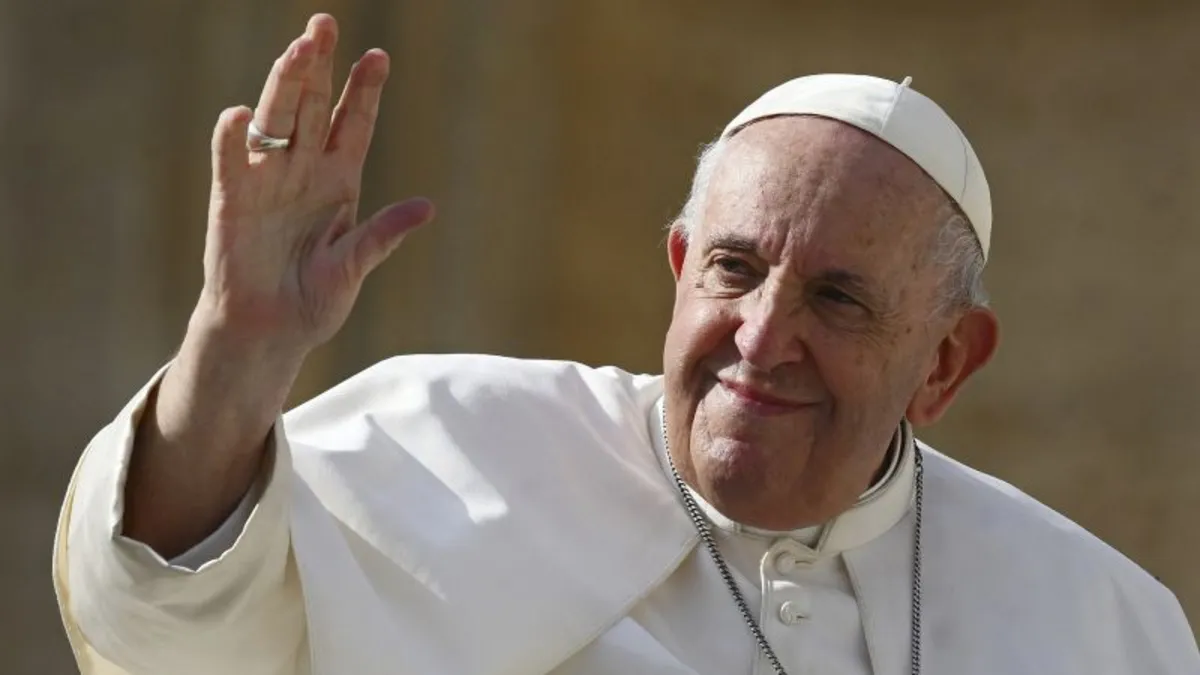
Pope Francis, a transformative leader known for his unwavering voice for the poor, has passed away at the age of 88. The Vatican confirmed his death on Monday morning through a statement by Cardinal Kevin Farrell, the Vatican camerlengo. In his announcement, Cardinal Farrell expressed deep sorrow, stating, “Dear brothers and sisters, with deep sorrow I must announce the death of our Holy Father Francis.” He added, “At 7:35 this morning the Bishop of Rome, Francis, returned to the house of the Father.”
The statement from Cardinal Farrell highlighted Pope Francis’s lifelong commitment to the service of the Lord and His Church. “He taught us to live the values of the Gospel with fidelity, courage, and universal love, especially in favour of the poorest and most marginalized,” he emphasized. The Vatican expressed immense gratitude for Francis’s leadership, commending him as a true disciple of the Lord Jesus and entrusting his soul to the infinite mercy of the Triune God.
The death of Pope Francis comes just weeks after he was discharged from a hospital in Rome, where he had been treated for a life-threatening case of pneumonia affecting both lungs. His medical team stated that his condition had stabilized, allowing him to continue his recovery at his residence, Casa Santa Marta, within the Vatican. Remarkably, just two weeks after his hospital release, he surprised the faithful with an appearance at St. Peter’s Square, showcasing his enduring spirit.
The passing of Pope Francis will undoubtedly spark discussions regarding the future direction of the Catholic Church. Cardinals from around the globe are expected to gather in Rome in the coming days to mourn the pontiff and begin the process of electing his successor. As the first Latin American pontiff, elected in 2013, Pope Francis was not only one of the oldest popes in history but also a figure of significant change in the Church.
Throughout his papacy, Pope Francis championed the rights of the poor, migrants, and the environment. He was particularly vocal in criticizing US President Donald Trump’s immigration policies, aligning himself firmly against the deportations that affected many vulnerable communities. His leadership served as a counterbalance to the rise of nationalist populism, though he faced criticism from conservative factions within the Church, particularly in the United States.
Despite his advocacy and efforts for reform, divisions within the Catholic Church remained, particularly regarding issues such as same-sex relationships and the handling of abuse scandals. Pope Francis’s legacy is one of compassion and reform, yet the challenges he faced will continue to influence the Church's future.
This is a developing story, and updates will follow as more information becomes available regarding the legacy of Pope Francis and the future leadership of the Catholic Church.